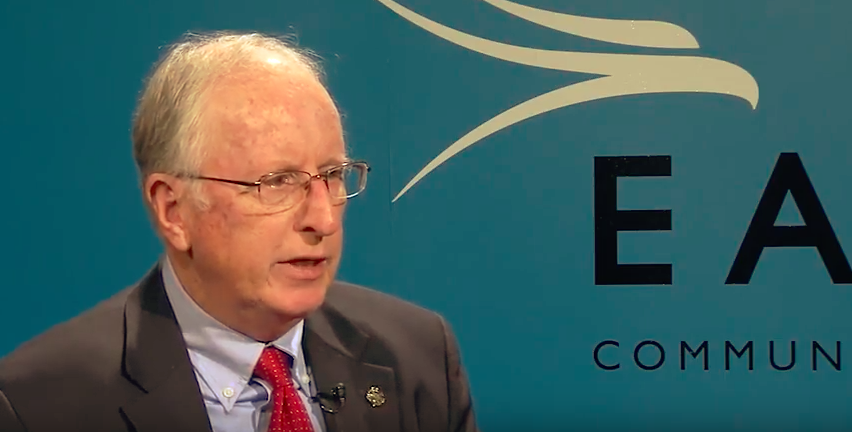By CRISTINA JANNEY
Hays Post
The Kansas Legislature has been charged with increasing school funding by as much as $600 million, but local legislators say that may be a painful process considering the current economic climate in the state.
The 2018 session starts today.
The Kansas Supreme Court ruled in October state funding for schools was inadequate despite the Legislature increasing school funding by $293 million over two years.
The Legislature also increased income taxes during the last session to close a budget gap created by Brownback-backed tax cuts.
Local legislators said this 2017 tax increase plus an upcoming election in November means it is unlikely a tax increase to finance schools would pass.
Rep. Don Hineman, R-Dighton, said raising taxes now would not only be very difficult politically, but harmful to the economy.
Rep. Ken Rahjes, R-Agra, did not vote for the tax increase last session and said he would not support one now.
An interim legislative committee has been meeting to try to address the funding issue.
Rep. Eber Phelps, D-Hays, said in an interview for Eagle Communications’s Forum with Gary Shorman, he did not think the committee was making good progress.
“What I think they are really struggling with right now is trying to respond to the court instead of attacking the court,” Phelps said.
“So the court ruled that our formula is unconstitutional. They also questioned the amount of money that is going in for base state aid or the overall budget for education. I think rather than try to work to a solution on that, I think this committee that has been meeting has been spending a lot of time hammering the court. I don’t know if that is going to be productive. I don’t think it is.”
He said the state may be able to draw from increased revenue to fund schools.
The state has seen revenue increases beyond estimates in each reporting period for the last four to five months
Phelps said he hoped the court would allow the district to address school funding in a three-year plan.
“I think we are going to be pretty close to $200 million that we can infuse into education, and it may be more than that. As they have tried to guess, they have been surprised,” Phelps said of the revenue increases. “I think if we can do $200 million each year, that would be $600 million over a three-year period.”
If all of the estimated $600 million had to come from the existing state budget, the state estimates that would equal about an 18 percent across-the board cut to all other state-funded programs. The interim committee heard state agency reports on this scenario.
Hineman said, “The picture that emerged was pretty depressing. I think that it is apparent that no one wants to be responsible for cutting other agencies to that extent.”
If there needed to be cuts to other agencies to fund schools, he said he would prefer to see them done by department rather than across-the board. Hineman said he too supported a phased-in funding increase for schools and also hoped revenue increases would help meet the court’s demands.
However, he said the state can’t rely on increases in revenue alone to deal with the school finance issue. The state’s major industries—oil and gas, agriculture, and aviation—remained depressed.
There has been discussion by the legislators about trying to pass a constitution amendment that would limit the court’s power on school finance. That would require a two-thirds vote by both the Senate and House and a majority vote of the public.
Hineman said he thought it was time to have the discussion. However, he noted it would be an uphill battle to get anything passed.
“The people of Kansas and legislators have a high regard for public schools,” he said. “We want to see our students adequately prepared for their futures, but we have other obligations too. I don’t want to short change other departments by 18 percent. That is really not responsible government. That was not what I was elected to do.”
Rahjes also said he would be willing to discussion a constitutional amendment, but added he would have to review language before he would support it.
“Messing with the constitution is not something to be taken lightly,” he said.
Rahjes said he wanted to see local school districts, especially those rural schools in western Kansas continue to have a voice in the debate.
“The key to a successful economy and state is a strong education system, but we have to make sure the people and the taxpayers are being served well and we are being good stewards of their money,” he said. “We want to continue to engage parents and citizens and school boards and administrators. We all want what is best for students. We may have a different route to get there, but if we continue the conversation, we will get there.”
The Legislature has until April 30 to respond to the Kansas Supreme Court on school funding.

